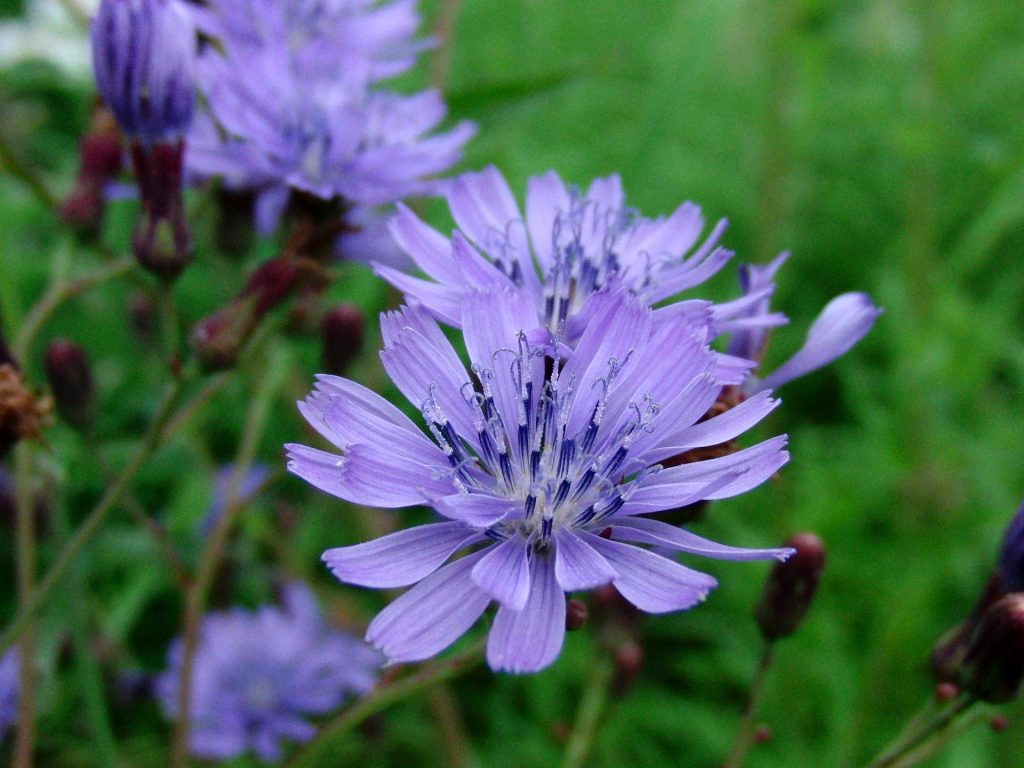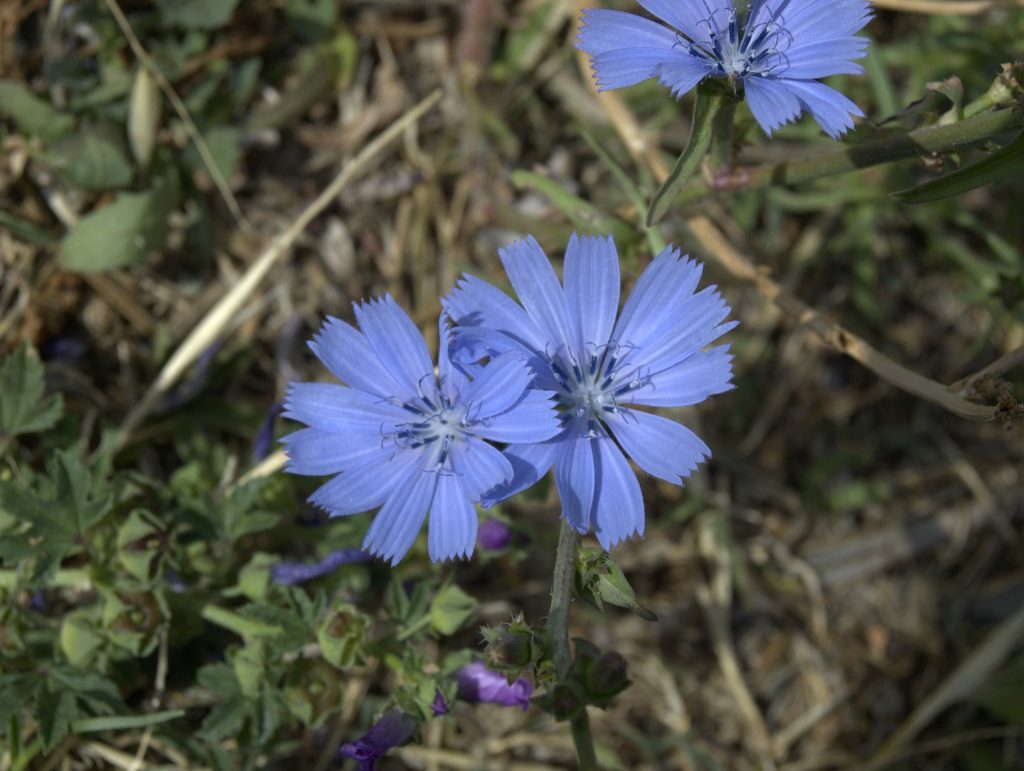 Kasani (Cichorium intybus), also known as chicory, is a perenial heraceous plant that contains a number of important phytochemical groups that show medicianl properties. Theses include sesquiterpene lactones (including lactucin, lactucopicrin, 8-desoxy lactucin, guaianolid glycosides, including chicoroisides B and C and sonchuside C), caffeic acid derivatives (including chiroric acid, chlorogenic acid, isochlorogenic acid, dicaffeoyl tartaric acid), inulin, sugars, proteins, hydroxycoumarins, flavonoids, alkaloids, steroids, terpenoids, oils, volatile compounds, coumarins, vitamins and polyynes. Some of these chemicals may be partly responsible for the hepatoprotective and gastrointestinal effects seen with kasani extracts. The roots and peel of kasani may be particularly high in inulin, which may have blood glucose modulating effects. Ethanol extract appear to be particularly high in inulin. The insulin sensitising effects of kasani, may also indirectly explain the beneficial effects on the liver.
Kasani (Cichorium intybus), also known as chicory, is a perenial heraceous plant that contains a number of important phytochemical groups that show medicianl properties. Theses include sesquiterpene lactones (including lactucin, lactucopicrin, 8-desoxy lactucin, guaianolid glycosides, including chicoroisides B and C and sonchuside C), caffeic acid derivatives (including chiroric acid, chlorogenic acid, isochlorogenic acid, dicaffeoyl tartaric acid), inulin, sugars, proteins, hydroxycoumarins, flavonoids, alkaloids, steroids, terpenoids, oils, volatile compounds, coumarins, vitamins and polyynes. Some of these chemicals may be partly responsible for the hepatoprotective and gastrointestinal effects seen with kasani extracts. The roots and peel of kasani may be particularly high in inulin, which may have blood glucose modulating effects. Ethanol extract appear to be particularly high in inulin. The insulin sensitising effects of kasani, may also indirectly explain the beneficial effects on the liver.

In one study, mice administered carbon tetrachloride had a 100 % death rate. Coadministration of kasani reduced the death rate to 30 %, due to the beneficial effects kasani had on liver function. In cell culture studies, kasani seeds have been shown to reverse expression of protein markers of liver damage and to prevent liver injury in rats. Kasani is protective of paracetamol (acetaminophen), carbon tetrachloride and oxytetracycline induced liver damage in rodents.
When the liver becomes stressed, the expression of a number of enzymes can increase. As levels rise, these enzymes can spill over into the blood. As liver stress proceeds levels of enzymes such as alkaline phosphatase (ALP), glutamic oxaloacetic transaminase (GOT; also called aspartate transaminase (AST) or aspartate aminotransferase (ASAT)), alanine transaminase (ALT; also called alanine aminotransferase (ALAT)) and GPT (gamma glutamyl transpeptidase) increase in the blood. Kasani extracts can significantly reduce elevated levels of these enzyme markers of liver stress in experimental animals, suggesting that kasani extracts are having anti-stress effects on the liver. When the liver is stressed metabolic changes cause levels of blood proteins and the carrier protein albumin to fall. Kasani extracts are able to reverse these falling levels of protein and albumin, again suggesting that the extracts are having an antistress effect on the liver. Kasani therefore appears to be able to favourably modify liver function.

Kasani also shows potent anti-inflammatory effects. As liver damage is associated with inflammation of hepatic tissue, these could also contribute to the hepatoprotective effects of the herb. Kasani extracts have been shown to inhibit the proinflammatory eicosanoid, prostaglandin E2 and tumour necrosis factor alpha (TNF-α). The down regulation of TNF-α may in turn cause a decrease in the proinflammatory enzyme cyclooxygenase-2 (COX-2). Kasani may also cause a direct downregulation of the proinflammatory cyclooxygenase (COX) enzyme. The sesquiterpene lactone guaianolide 8-deoxylactucin, present in high amounts in kasani, may be a direct inhibitor of COX-2 protein expression, further demonstrating the anti-inflammatory effects of kasani.
Eat Well, Stay Healthy, protect Yourself
RdB
